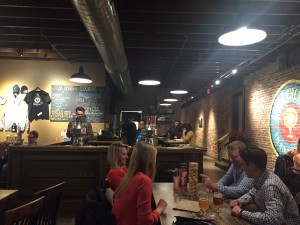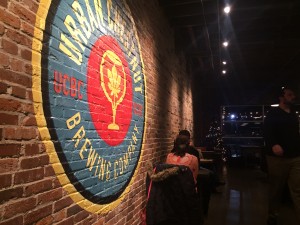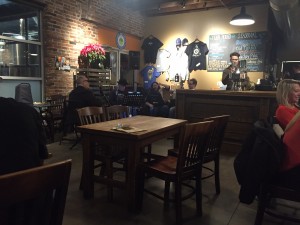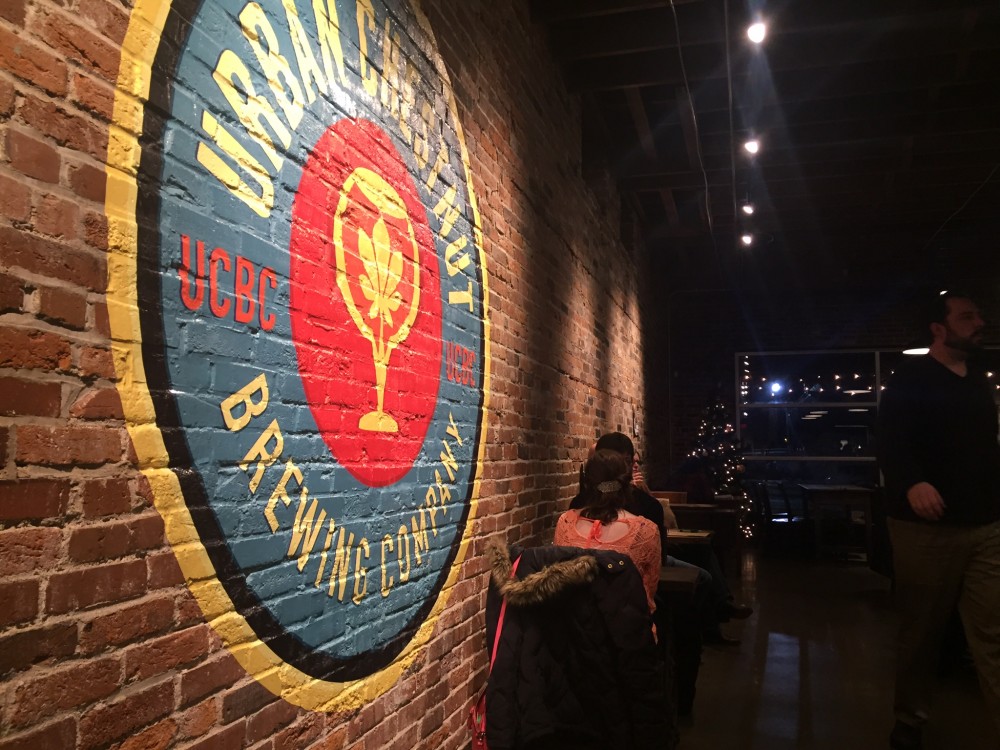
Several customers play Jenga while sipping on their Urban Chestnut brews. The brewpub often offers live entertainment and games to customers while they drink.
A St. Louis hotspot, with locations in The Grove and Midtown, Urban Chestnut is known for its dual focus on traditional beer styles and experimental craft styles.
If you’re a beer lover into traditional European beers, the Reverence series of tried-and-true brews is for you. If you want something that feels more in line with the craft beer movement, check out the Revolution series.
Brewmaster and co-founder Florian Kuplent says though he grew up in Germany around more traditional styles of beer, he also wanted to give himself and co-founder David Wolfe license to create new recipes, which is where the two-series idea came from.

The Midtown UCBC location features mostly Reverence Series brews, or beers that fit in traditional European classifications. The ambiance screams young and hip, while the brews are more traditional.
“It’s kind of fun to recreate a beer style that you’re familiar with and try to perfect [it],” Kuplent says. “It’s also just kind of fun to come up with a new recipe using a new hop variety or a new type of yeast [you’ve never] used before. Both have [their] appeal.”
Kuplent says he has been in the brewing business for a while and has a degree in brewing from a German university. Though UCBC has had its hiccups — such as difficulty in installing its first bottle filler — most things have run relatively smoothly.
“I have not had any major things where I said, ‘Hey, I should not have done this, or we should not have set Urban Chestnut up,’” Kuplent says. “It’s been a lot of fun, and I enjoy everything very much.”
From the start, the public reception of UCBC has been positive. Kuplent says at noon the day it opened, UCBC announced on Facebook and Twitter it would be opening at 5 p.m. and by 6 p.m., UCBC had a full house.

A band plays in the background as customers drink Urban Chestnut’s Reverence Series at their Midtown location. The Reverence Series features traditional European styles, while the Revolution Series features experimental and craft styles.
Kuplent says in addition to the support from the public, he thinks there is a sense of camaraderie between brewers and breweries.
“Yes, we do sell the same product, so to some degree, there is competition, but it’s all a big family and we’re part of a St. Louis Brewers Guild,” Kuplent says. “We organize festivals together, and we just had our fifth anniversary festival and pretty much invited everybody in St. Louis, and there were 20-plus breweries that showed up to pour beer at our festival.”
Kuplent says the craft beer movement probably has opened consumers up to the idea of trying more and different beers. As people are exposed to different styles of beers and the concept of a local brewery, Kuplent says they’re more likely to try new varieties.
Tell us about your beer
Trademark: “I’m originally from Germany — I grew up there, but I didn’t just want to focus on German-style beers, so we kind of gave ourselves some license to do whatever we want to do, and so we came up with a concept where we basically have two line-ups,” Kuplent says. “One is more classic European styles, and then the other is more craft styles — trial or experimental styles. So we basically focused on those two areas and had a lot of fun with that.”
